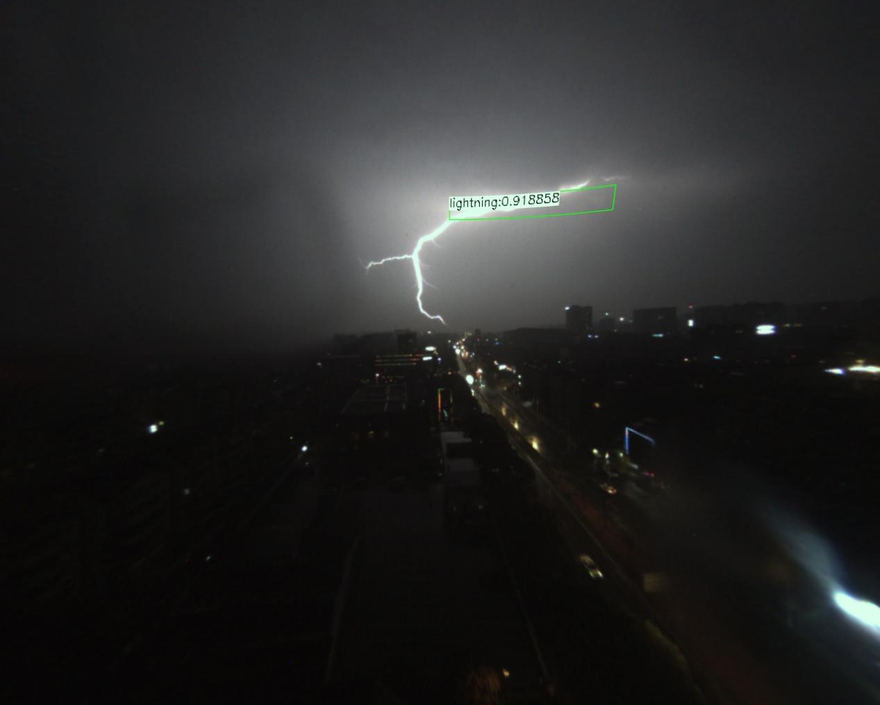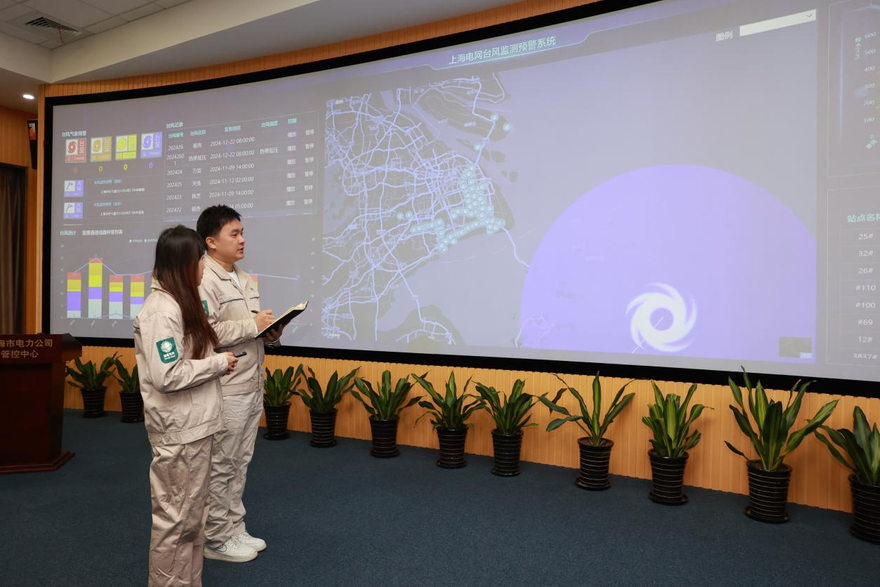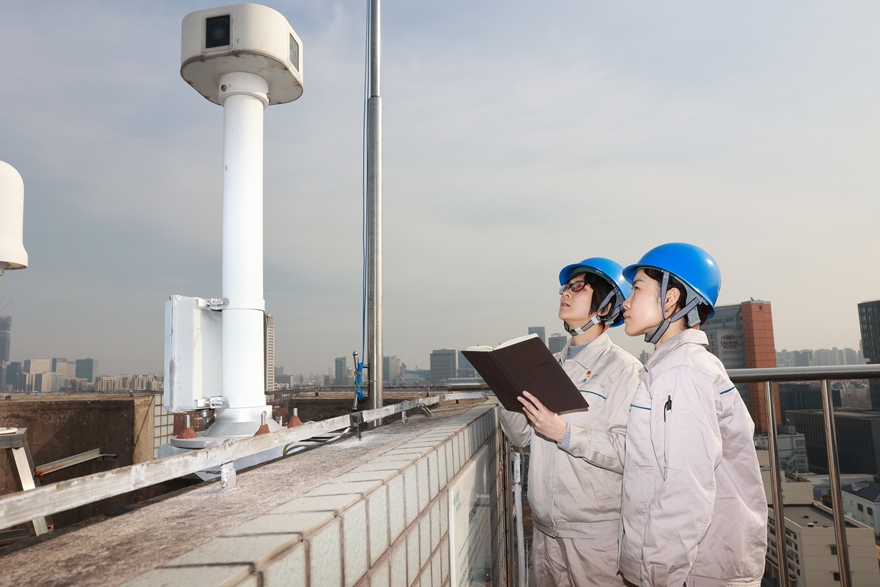In 2024, Shanghai faced the strongest typhoon, Bebinca, to hit the city in 75 years. Recently, the State Grid Shanghai Electric Research Institute and the Shanghai Meteorological Service Center signed a strategic cooperation agreement based on the innovated collaboration mechanism, which ensures energy security and development with high-level meteorological services centered around the "electricity + meteorology" information service model.

The lightning monitoring and warning device captures the moment of lightning.
In the face of frequent typhoons, technicians from SGSERI stated that typhoon path trajectories can be calculated based on meteorological satellite data and real-time monitoring data from State Grid Shanghai's meteorological monitoring instrumentations, providing typhoon and flood prevention strategies for the city's power grid.
During the landing of Bebinca, Fengxian Power Supply quickly notified line operation and maintenance personnel in various districts to prepare for repairs after receiving information from State Grid Shanghai Branch's typhoon monitoring and warning system. According to introductions, Shanghai's typhoon warning substation closely monitored the collapse of line towers through real-time calculations and promptly notified transmission line operation and maintenance units once a warning had been issued.

Employees of the State Grid Shanghai Electric Research Institute are inspecting the lightning monitoring and warning device.
Currently, Shanghai's typhoon monitoring and warning system has been equipped with 110 sets of integrated typhoon monitoring and warning devices for transmission lines along coastal routes. The wind field forecast accuracy has been improved to a 1-square-kilometer range, and the interval of forecast issuances has been shortened to one hour, achieving all-around coverage of lines with voltage levels of 110 kV and above in Shanghai's power grid, capable of monitoring wind speed and rainfall information around the lines in real-time. SGSERI’s eight positioning system detection stations, 14 warning system detection stations, and five lightning image observation stations send information on lightning activity, such as lightning distribution and lightning current amplitude, to the operation and maintenance management department of State Grid Shanghai Electric Power Lines every day on time.

Employees of the State Grid Shanghai Electric Research Institute are inspecting the lightning monitoring and warning device.
Today, SGSERI integrates data from typhoon monitoring and warning systems, lightning monitoring and warning systems, distributed fault diagnosis micro-applications, and unmanned aerial vehicle (UAV) autonomous inspection micro-applications to conduct early warning assessments of potential risks on site, enabling effective and linked applications among multiple systems.
(Source: State Grid Shanghai Electric Research Institute)
Copyright ©1997- by CRI Online All rights reserved